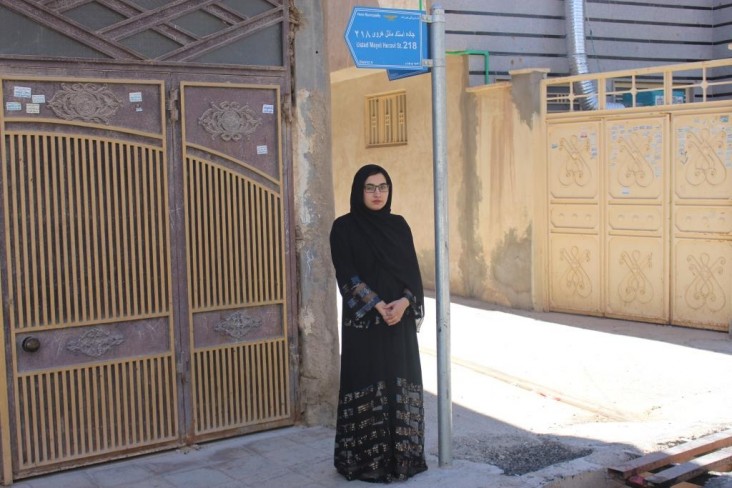Speeches Shim

Najia Safdari, a 32-year old mother of two and a small business owner, is the only breadwinner in her family. Her husband died two years ago from stroke. At her factory, Najia processes raw wool and weaves carpets. The lack of a proper addressing system in Herat made it more difficult for Najia to connect with her clients and suppliers, especially in the case of new connections.
But USAID’s Strong Hubs for Afghan Hope and Resilience (SHAHAR) Program piloted a street addressing and house-numbering project in district four of the city of Herat where Najia lives and works. It is now easy for her clients to find her factory to receive or deliver their products. This also helped Najia in the face of a crisis.
“Recently, there was a fire in the processing part of my weaving factory. I was quite fortunate because my factory is located in district four, where the addressing project was implemented. It took approximately five minutes until I got in touch with the fire department. Without wasting time, the fire brigade reached the area and extinguished the fire. Fortunately, the damage was not that much. In the absence of a proper addressing system, I might have lost around AFN 500,000 [over $6,000],” said Najia.
Herat is one of the most populous provinces of Afghanistan and one of the most developed cities. As the city has grown, its system of streets had gotten more complex, with many side streets and alleys that confuse both regular citizens and service providers. People depended on directions based on landmarks and frequent consultations with people on the street to reach their destinations. For businesses and service delivery, the lack of standard addresses increased costs and delayed services.
“The addressing project has significantly helped Herat Municipality to properly track revenue collection, as well as improve transparency and municipal governance.” Said Mohammad Mansoor Alizai, Urban Governance Director of Herat Municipality.
The innovative addressing system makes use of the familiar and easily understandable consecutive numbering of doorways as well as the assignment of numbers to vacant lots in anticipation of future development. The backbone of the system is a database that contains permanent doorway and street codes for tracking exact locations via a Global Positioning System (GPS).

Comment
Make a general inquiry or suggest an improvement.